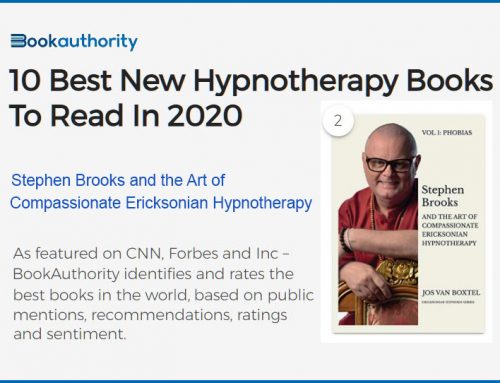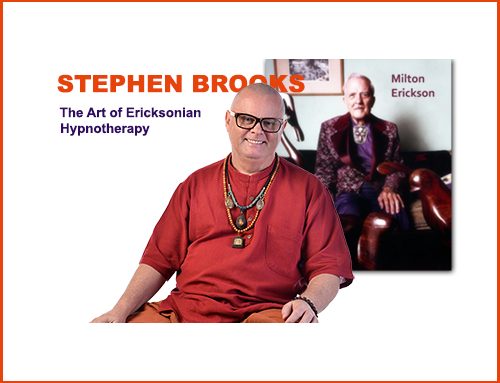For a man who worked for 10 years in a family business retailing computers and calculators in the 1980s, the leap to becoming a successful specialist in the field of therapies such as Clinical Hypnotherapy, CBT (Cognitive Behavioural Therapy) and counselling has been a remarkable one for Michael Cohen.
Cohen’s first book, Solutions to Stress, sold 35,000 copies. His second, The Power of Accepting Yourself, was a best-seller on Amazon Self-Help Charts reaching number one in February 2013. Now, his third book, Rethink it!, has just been published – which is quite a feat for someone who suffers from dyslexia.
“Being dyslexic certainly held me back when I was at school.” Cohen recalls. “The way I wrote was understandable but my spelling was really dreadful”.
Rethink it! is a lively, fascinating mix of personal experience with plenty of interesting sections under such titles as Be Your Own Best Friend, Five Steps To Chronic Worrying and what Cohen calls The Boredom Technique, which many people find helpful by repeating a worry hundreds of times.
At just 18, Cohen became a Samaritan and, by an extraordinary coincidence, discovered that he had a relative who was a hypnotherapist. “We got talking and I took part in some hypnotherapy which I found absolutely fascinating.
“I had enjoyed marketing all the latest computers at my parents’ electronics businesses in Sutton and London but wanted a change and that’s why I decided to become a therapist because here was something that interested me far more than computers ever could.”
Cohen went on to train with British Hypnosis Research, then based at St George’s Hospital in Tooting, South London, where he gained diplomas in such fields as counselling and various other therapies.
Over the years he took further training which led him to become involved in CBT, which is now a huge and, some would say, fashionable and indeed controversial trend.
“CBT has actually been around since the 1950s,” says Cohen. “The founders, Ellis and Beck, are both American and Jewish. I moved into the field of therapy in 1986 and have been in practice ever since.
“The psychologist Albert Ellis first developed his approach to therapy in the 1950s which came to be known as Rational Emotive Behaviour Therapy (R.E.B.T)
“The other is an American psychiatrist, Aaron Beck, and it was he who developed a different approach, known simply as Cognitive Therapy, in the early 1960s.”
It is true that some psychologists and therapists dismiss CBT as ineffective yet as, Cohen points out, there is plenty of evidence to back it up.
“In comparison to other therapies such as conventional counselling or more traditional psychotherapy, this method has become extremely popular in the NHS simply because it has proven to be so efficient,” he says.
“It really can help people overcome problems such as depression, anxiety, obsessive compulsive disorder and various phobias in a relatively brief period of time.
“I combine clinical hypnotherapy with CBT techniques and have used this approach for many years well before it became a popular combination with hypnotherapists”.
Cohen was originally approached to write when a professional in a completely different field asked whether he might be interested in writing a book on managing stress.
“Being dyslexic, the idea of this was incredibly daunting yet it appealed to me because I do enjoy a challenge.
“So I set about it and managed to finish the book in three months. But writing was certainly a baptism of fire because of my spelling. Even the computer spell-check has a job trying to decipher it.”
Cohen confides that one of the most important reasons he specialises in anxiety-related problems is because he has experienced the condition himself.
“When I present a workshop on something like developing self-acceptance I can still, on occasions, experience performance anxiety.”
“Yet now I know how to cope because CBT gives me the tools to help myself.
“It is true that there has been controversy with some professionals in the field claiming that CBT is not as effective as it is claimed to be.
“Of course, therapies go in and out of fashion yet there is extremely strong evidence that this therapy can be just as effective as medication and is, in fact, now very widely and regularly used as a tool on the NHS.
“One of the most important goals for me is to teach my clients to become their own therapist so that they will be able to learn to teach themselves to change the way they think, feel and behave.
“But, for me, it’s a case of: “Physician, Heal Thyself…”
Rethink it! Bookline&Thinker.com (£7.99)
Article: http://www.thejc.com/arts/books/150261/why-boredoms-my-best-therapy
Website: http://www.hypnosisandhealing.co.uk






